Sound Association Normal Alphabet Worksheets for Ages 5-9
23 filtered results
-
From - To
Welcome to our "Sound Association Normal Alphabet Worksheets" for ages 5-9! These engaging printable worksheets are designed to help young learners connect letter sounds with corresponding words and objects. Our resources foster essential phonemic awareness, enhancing reading skills and promoting literacy development. Each worksheet provides fun, interactive exercises that encourage children to match letters with sounds and adequately identify different phonemes. Perfect for homeschooling or classroom activities, our worksheets support diverse learning styles, ensuring that every child can thrive. Help your child build a solid foundation in language skills with our enjoyable and educational sound association activities today!
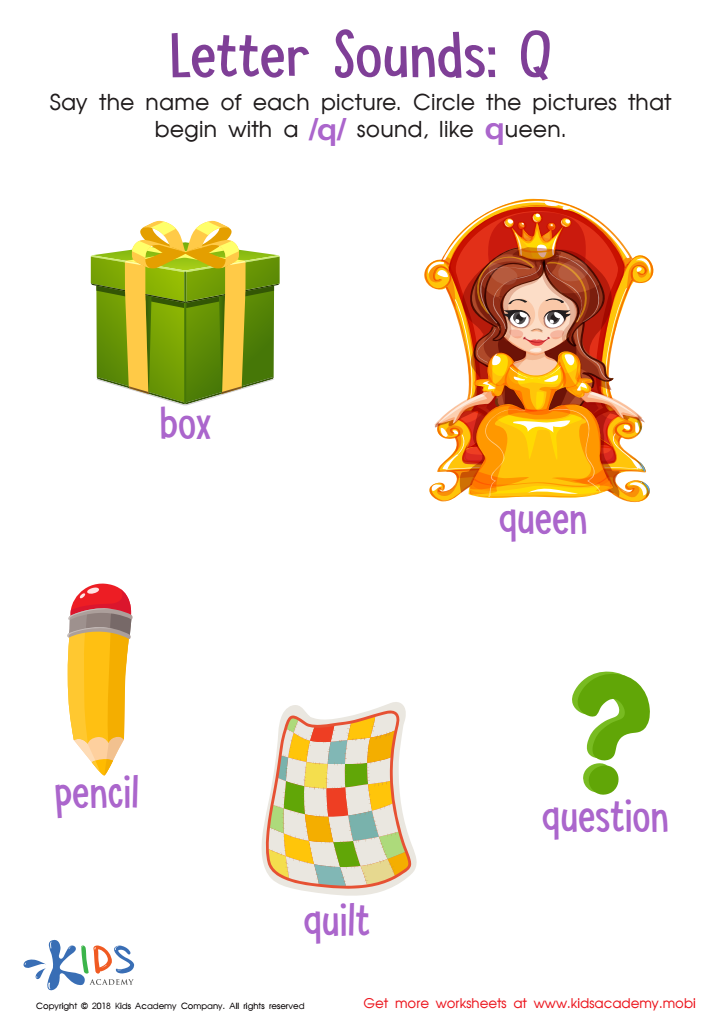

Letter Q Sounds Worksheet
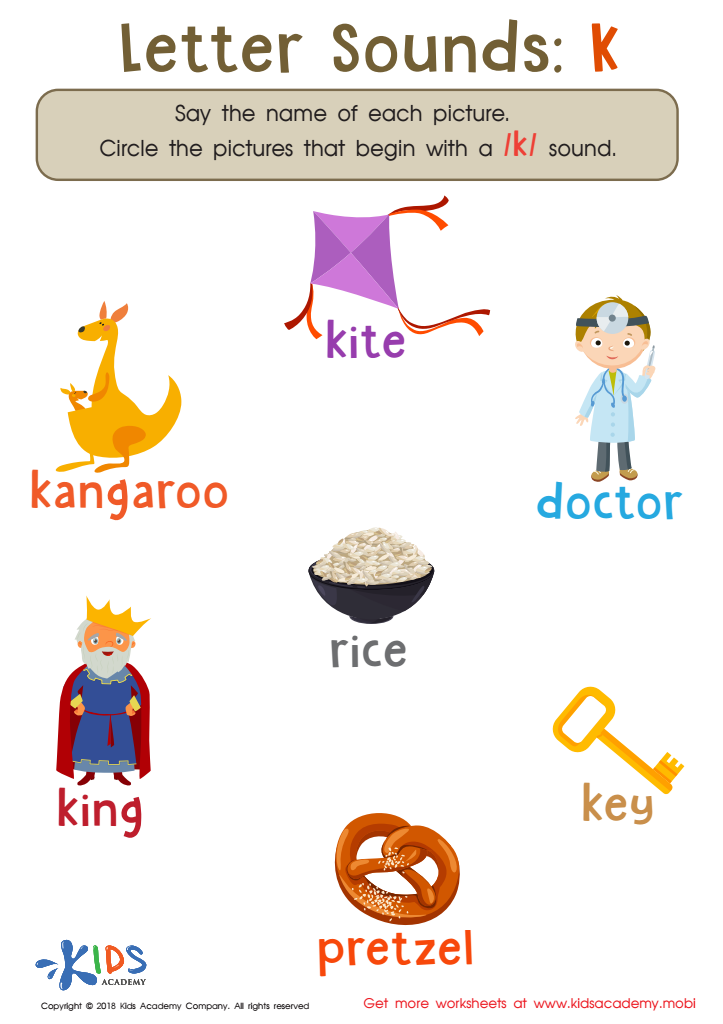

Letter K Sounds Worksheet
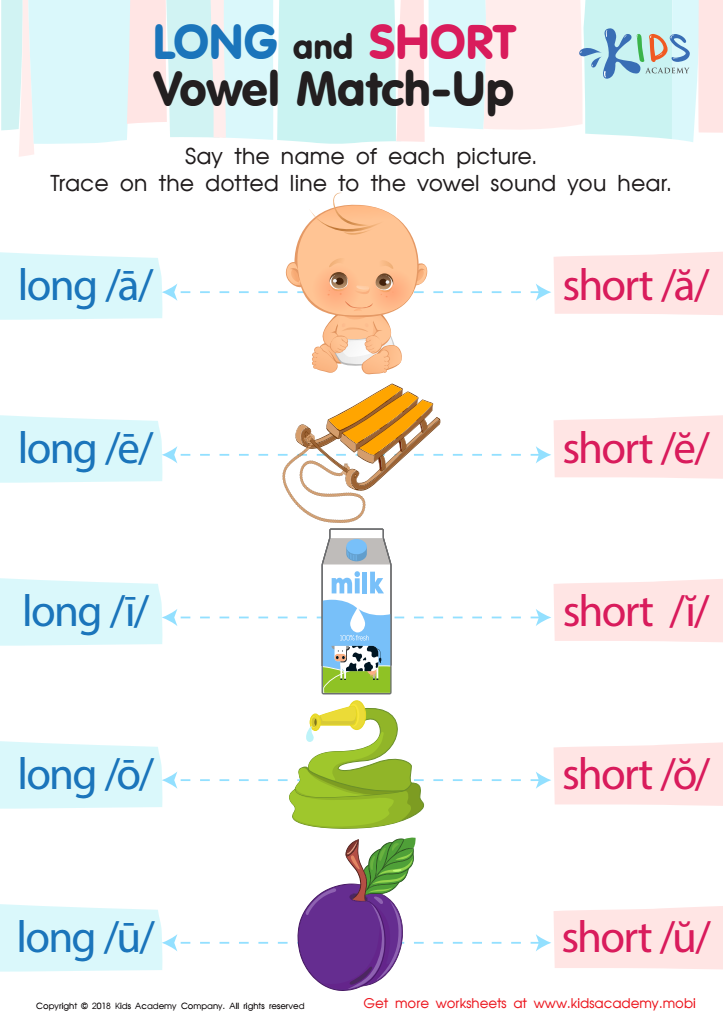

Long and Short Vowel Match up Reading Worksheet
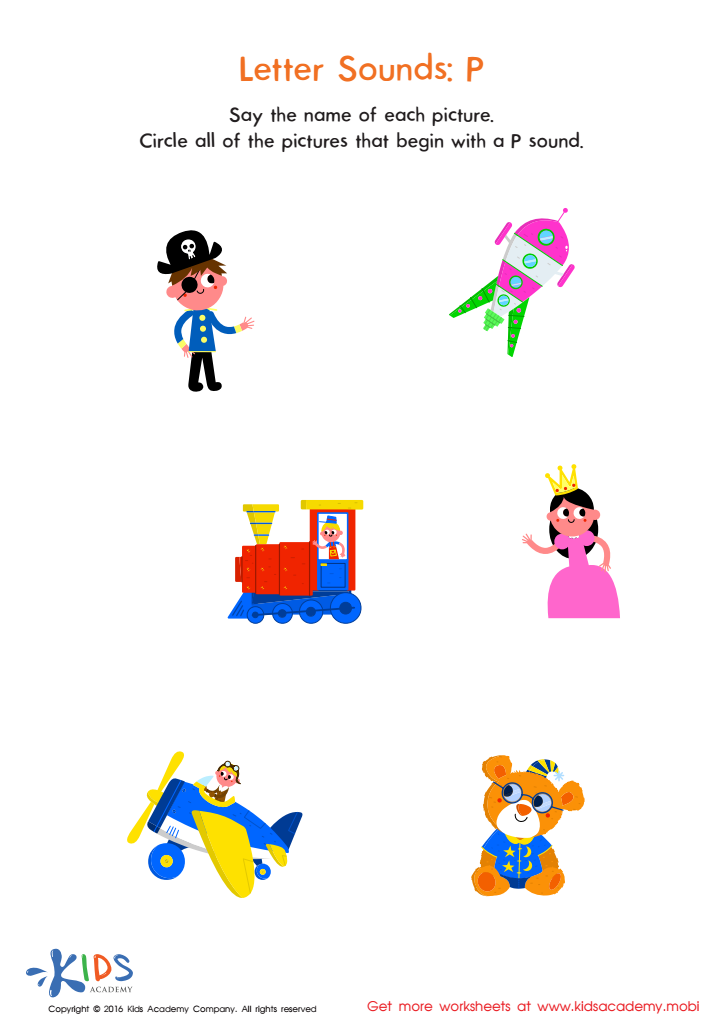

Letter P Sound Worksheet
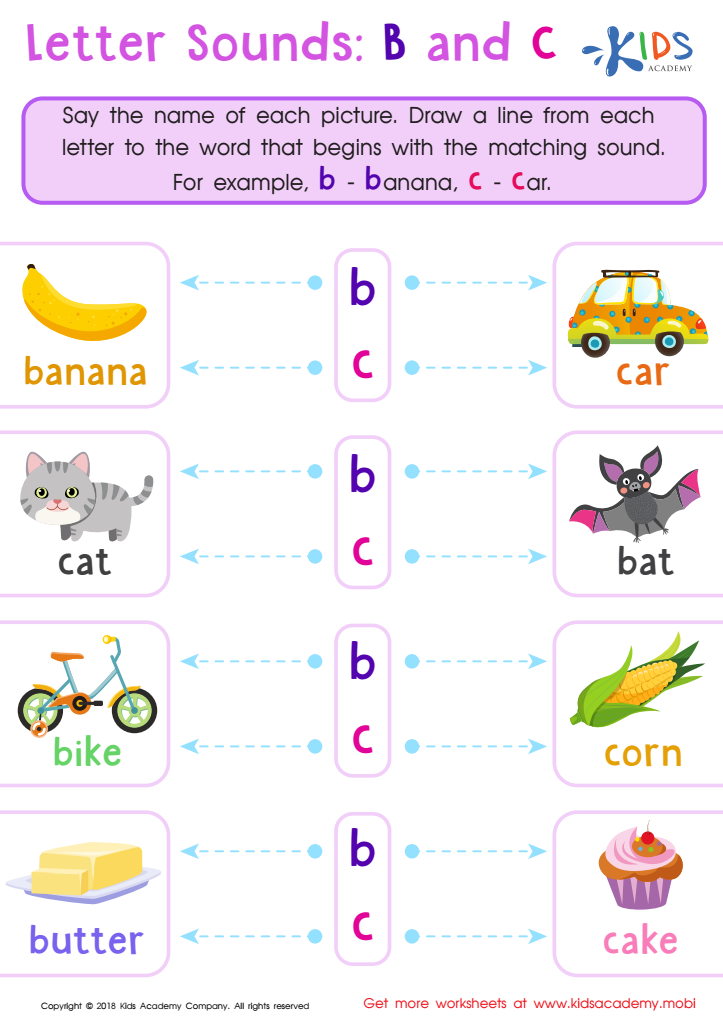

Letter B and C Sounds Worksheet
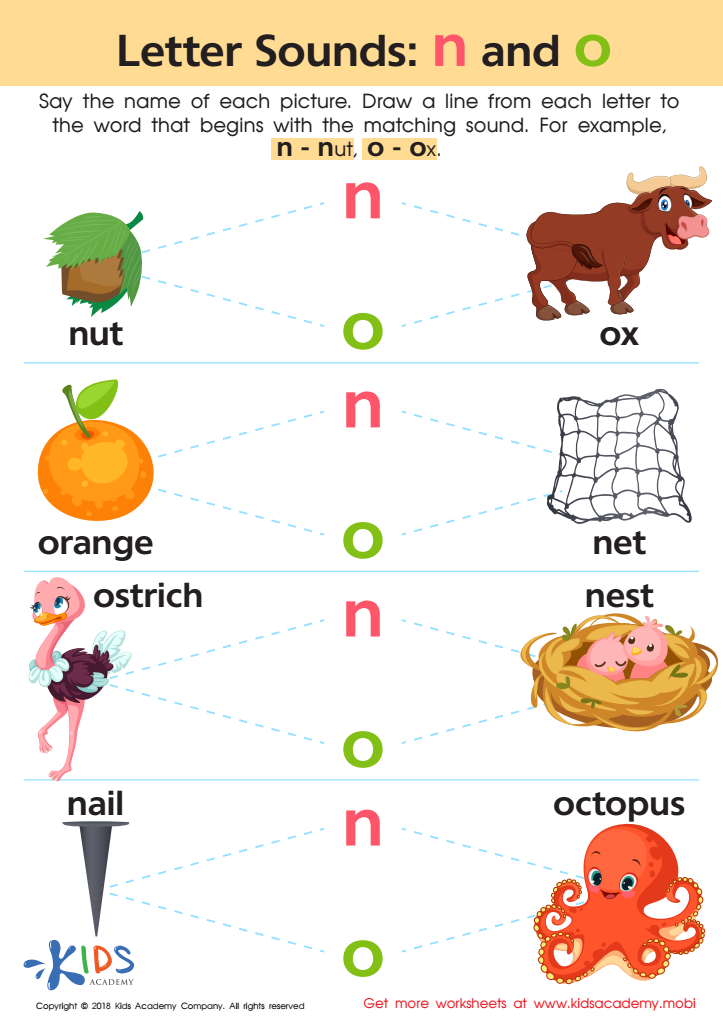

Letter N and O Sounds Worksheet
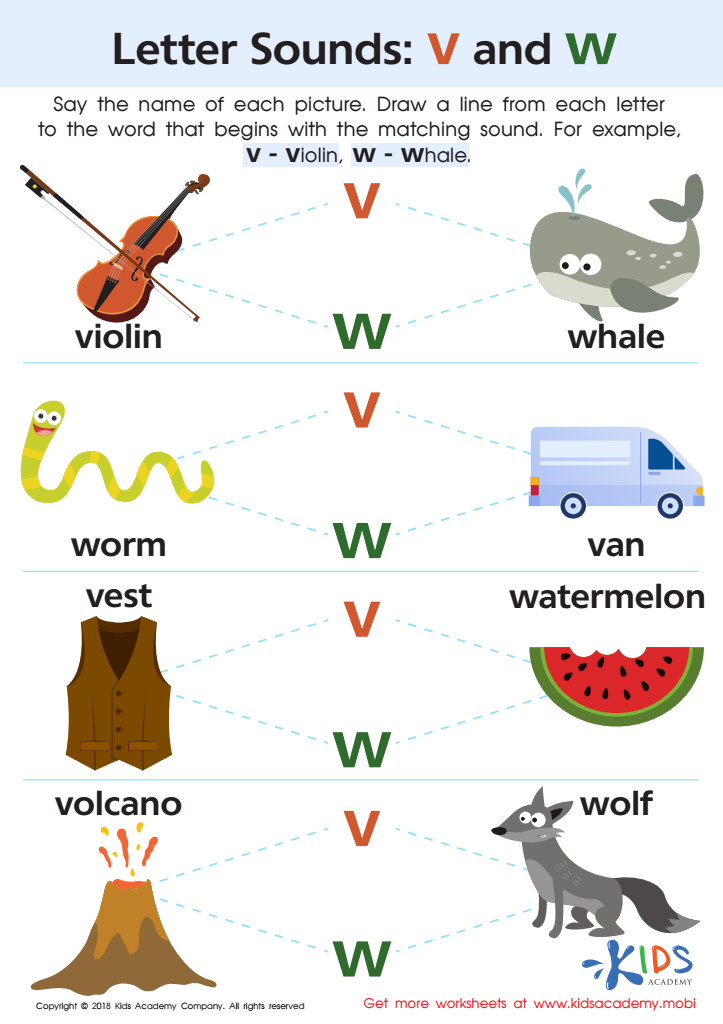

Letter V and W Sounds Worksheet
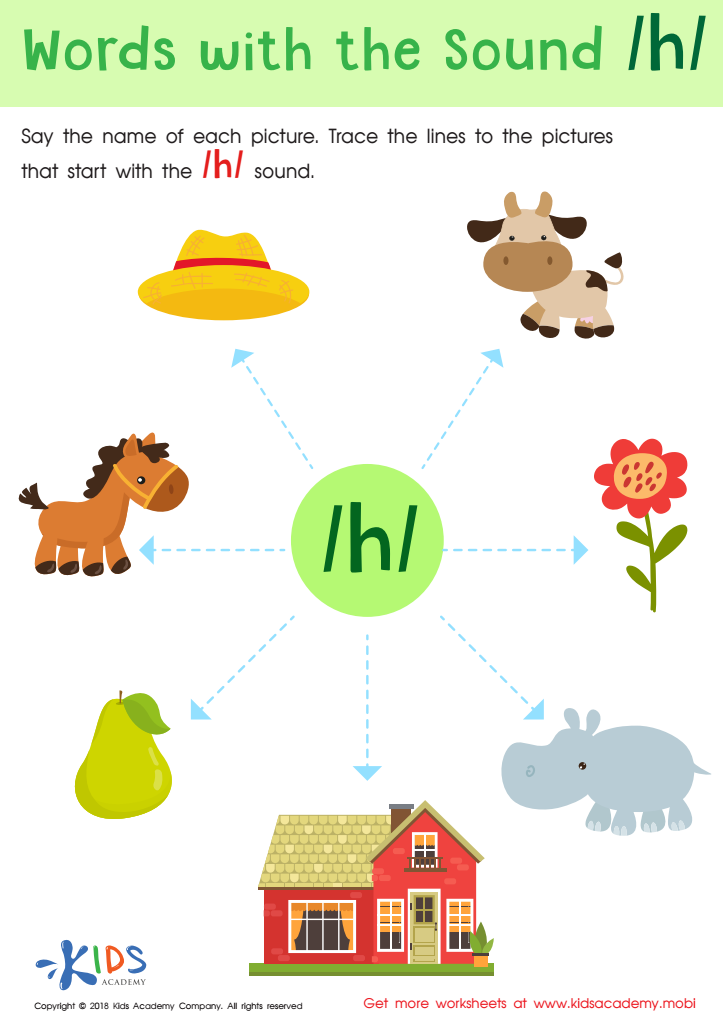

Words with sound h Reading Worksheet
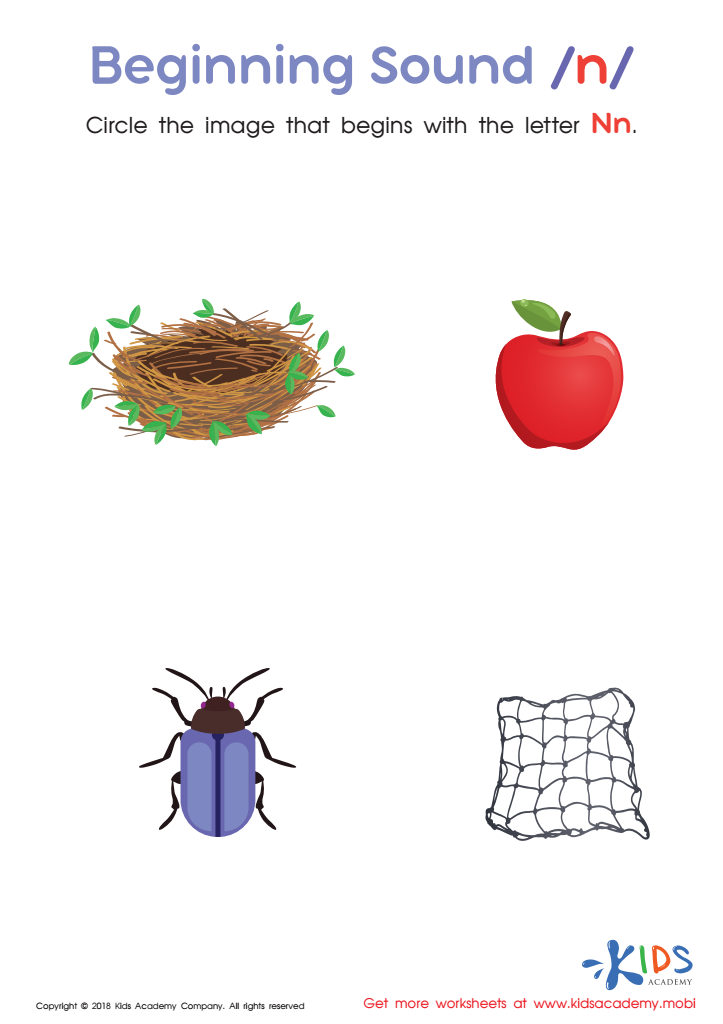

Beginning Sound «n» Worksheet
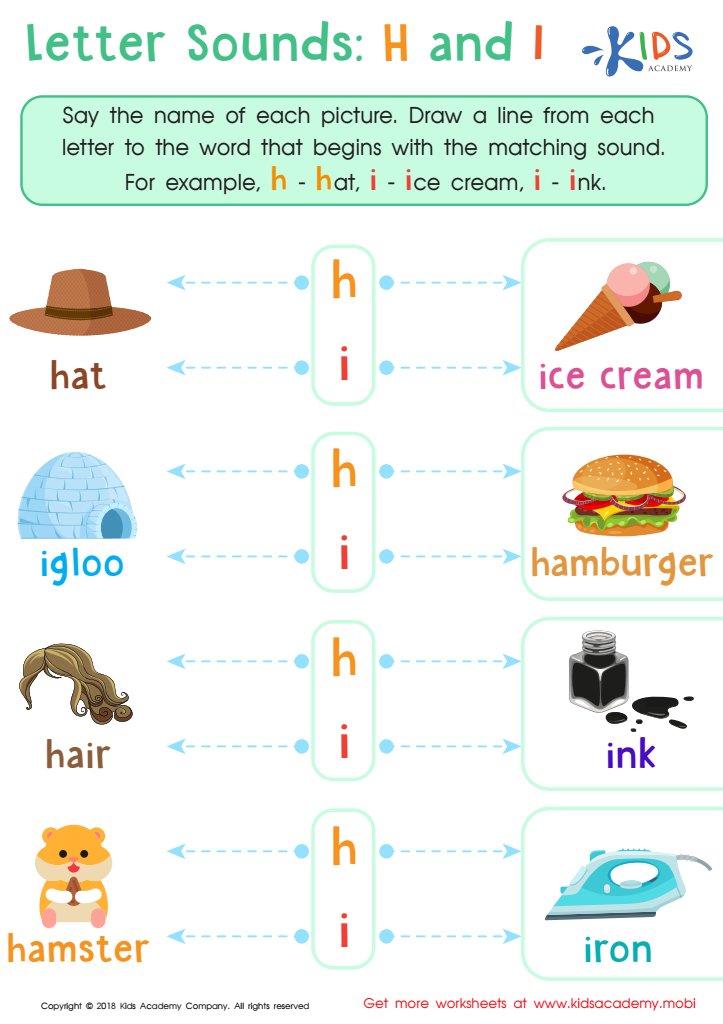

Letter H and I Sounds Worksheet
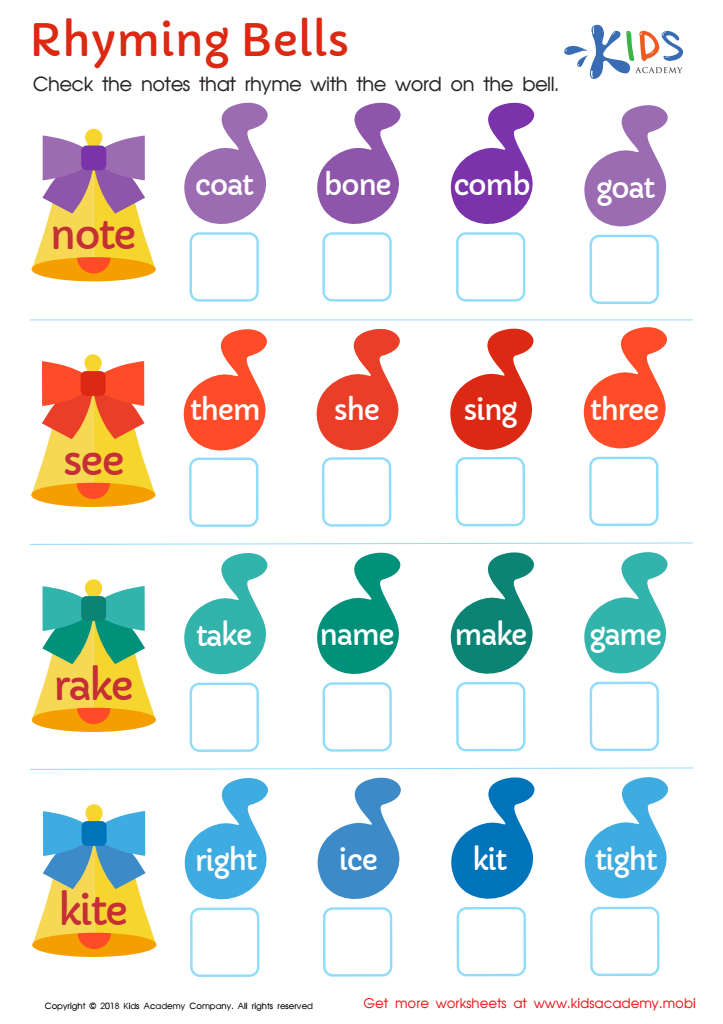

Rhyming Bells Worksheet
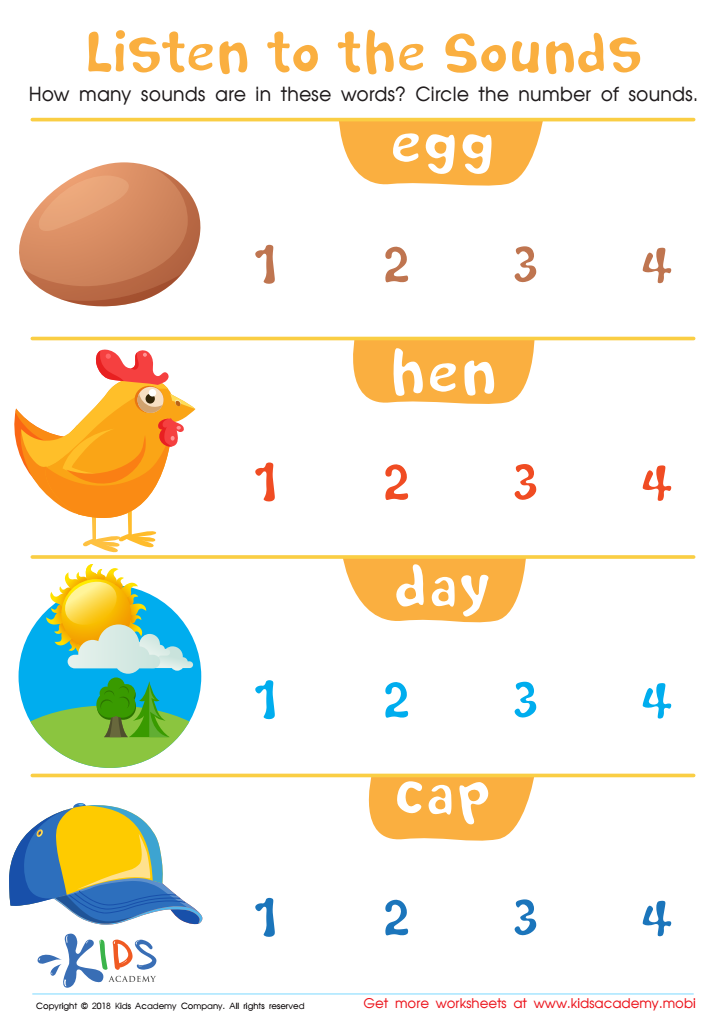

Listen to the Sounds Worksheet
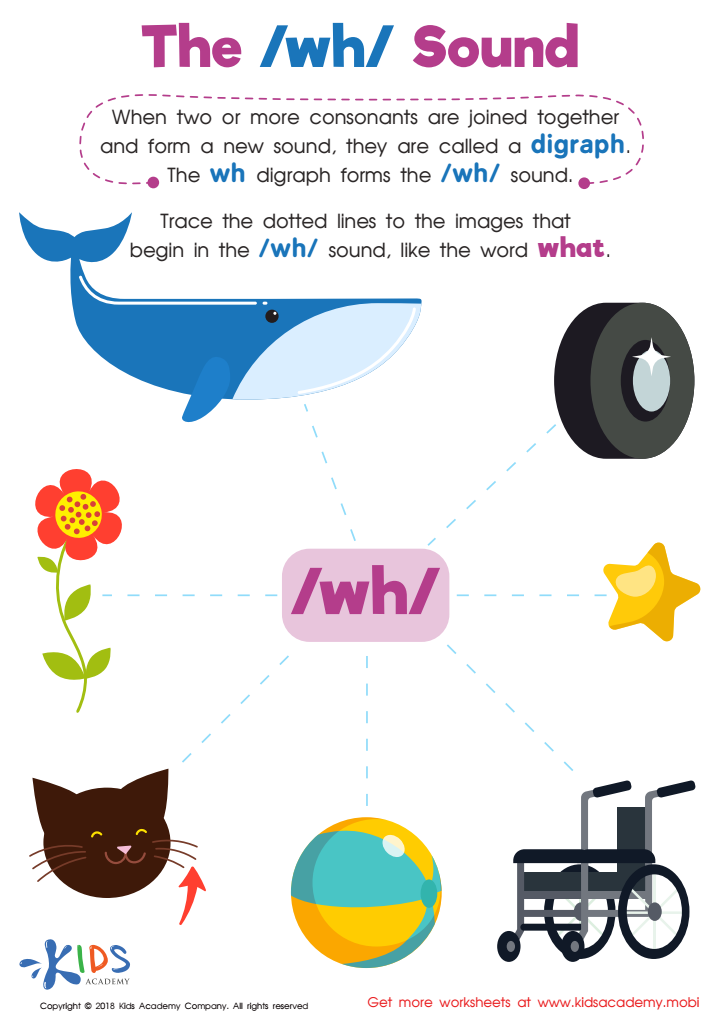

The /wh/ Sound Worksheet
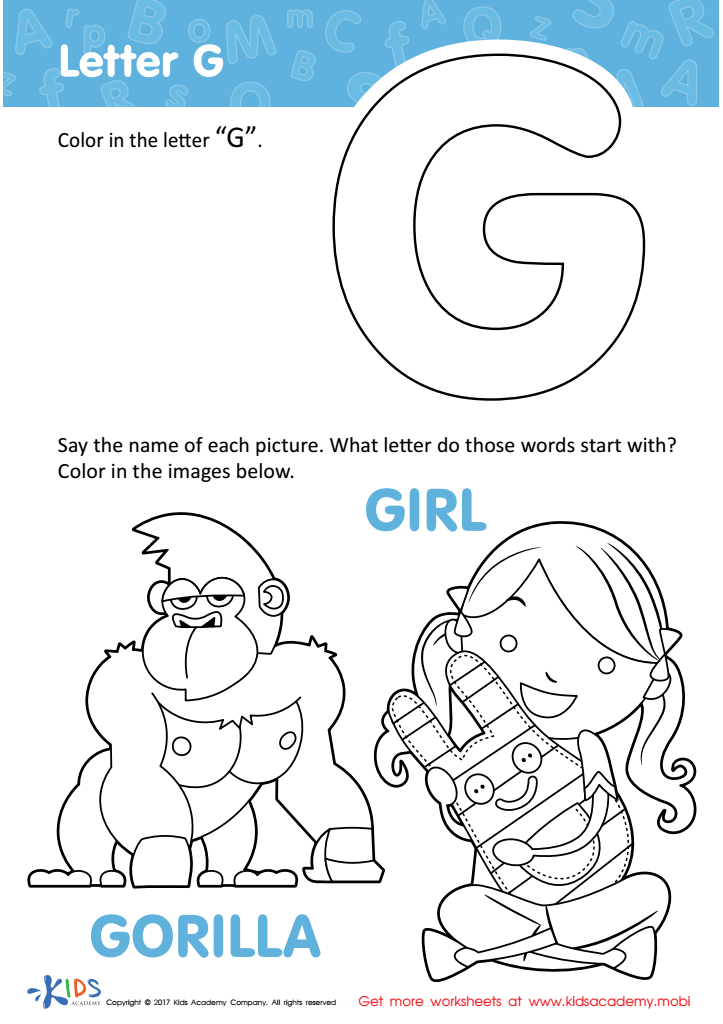

Letter G Coloring Sheet
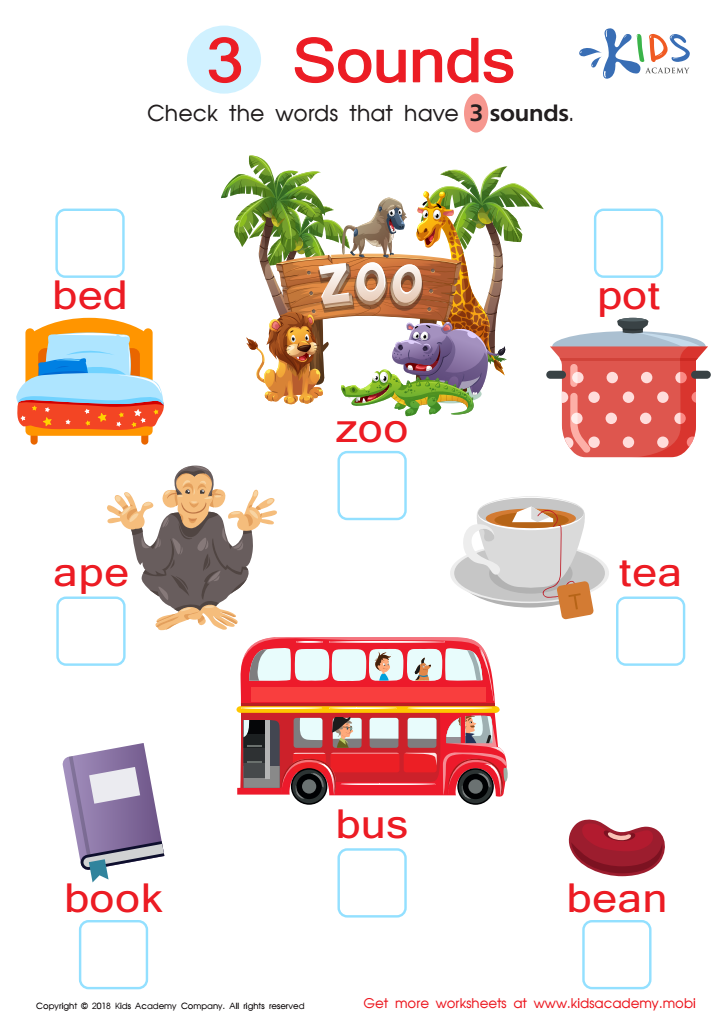

3 Sounds Worksheet
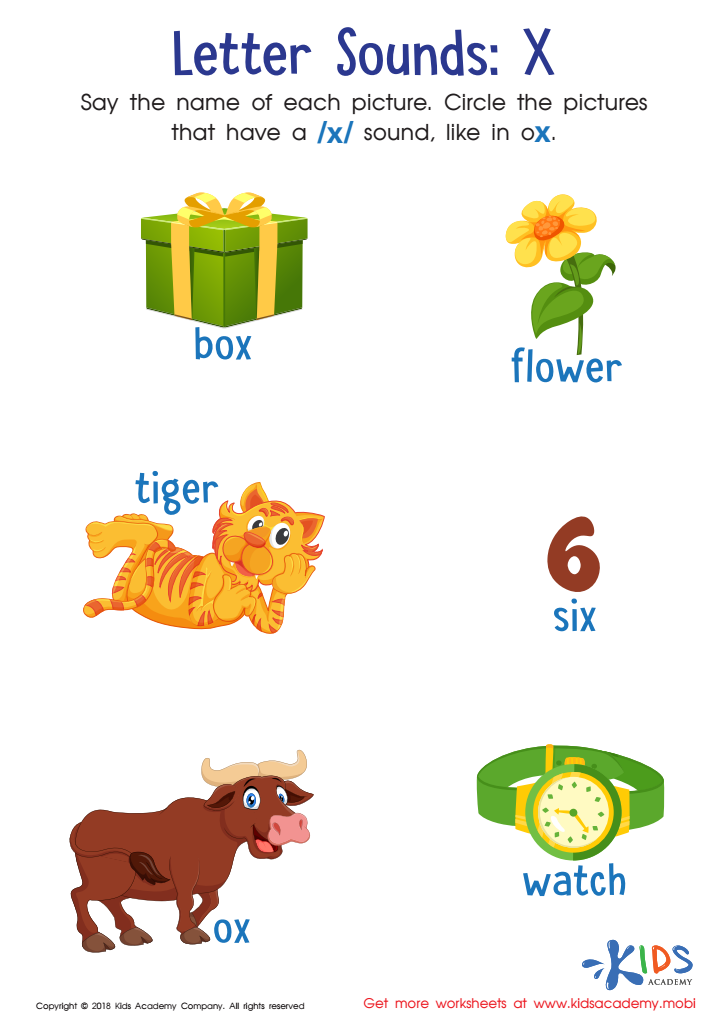

Letter X Sounds Worksheet
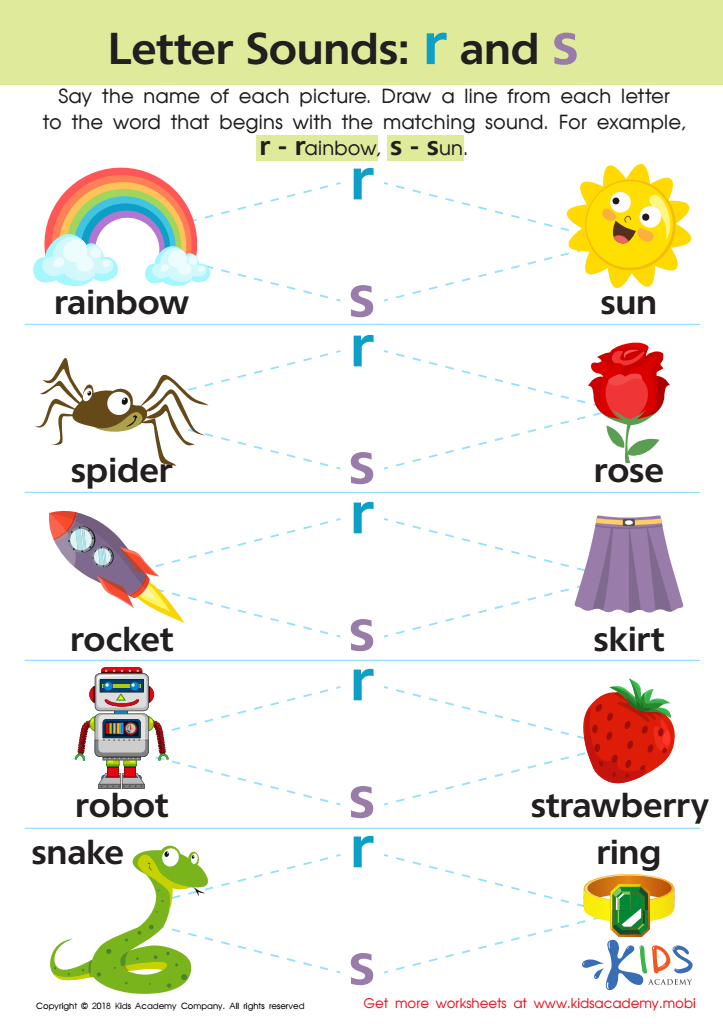

Letter R and S Sounds Worksheet
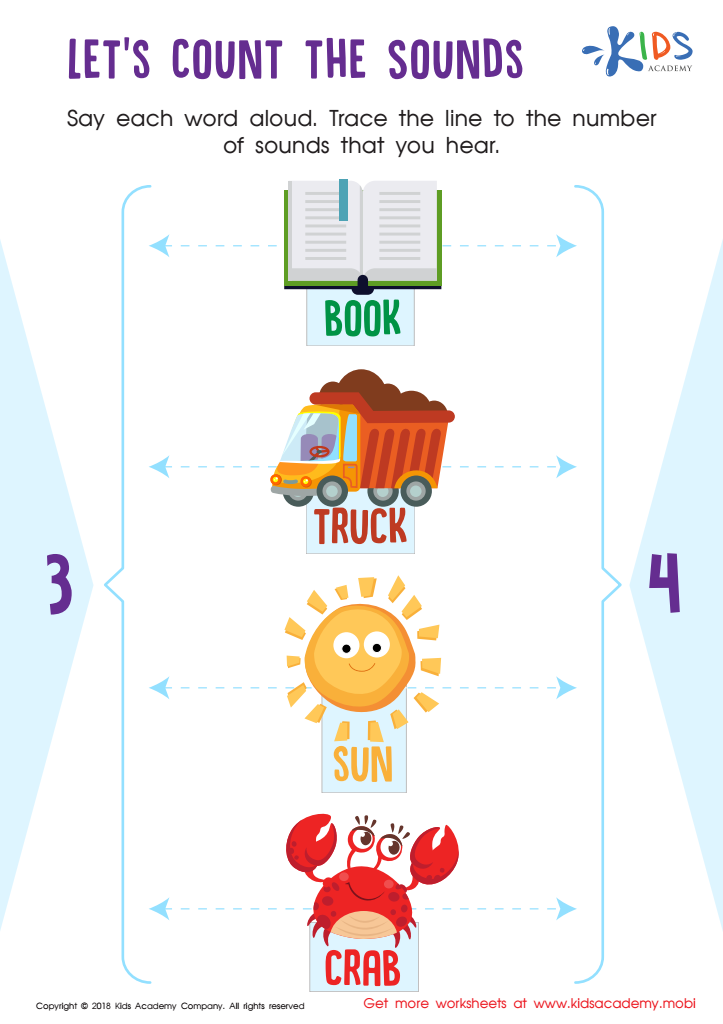

Let's Count the Sounds Worksheet


Words with sound f Reading Worksheet
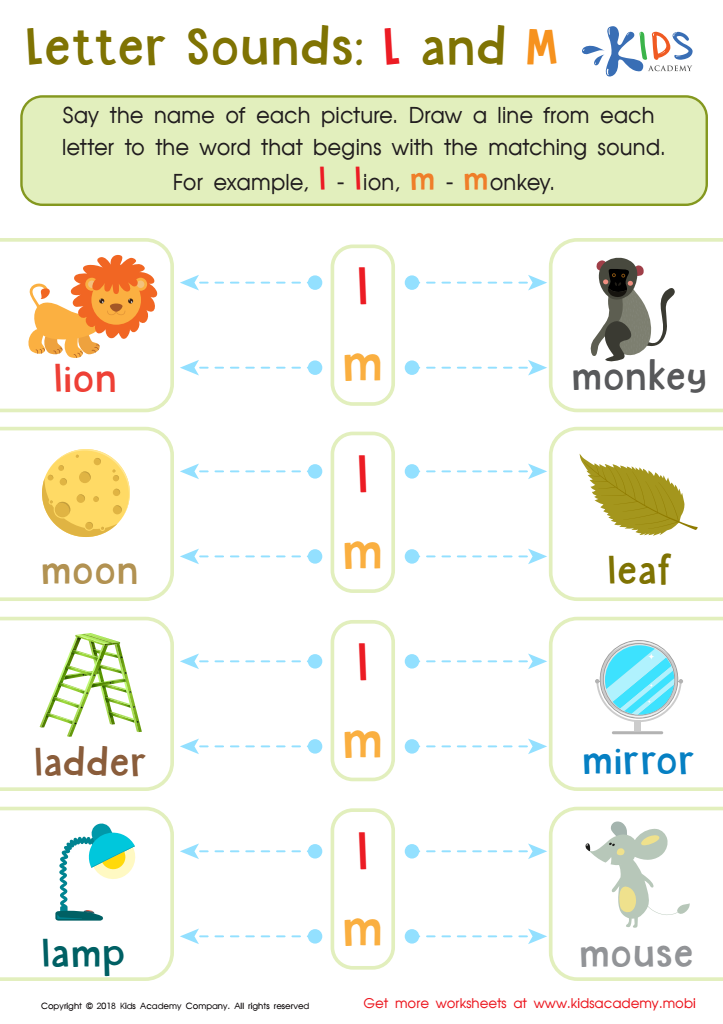

Letter l and M Sounds Worksheet


Phonological Awareness: Assessment 1 Worksheet
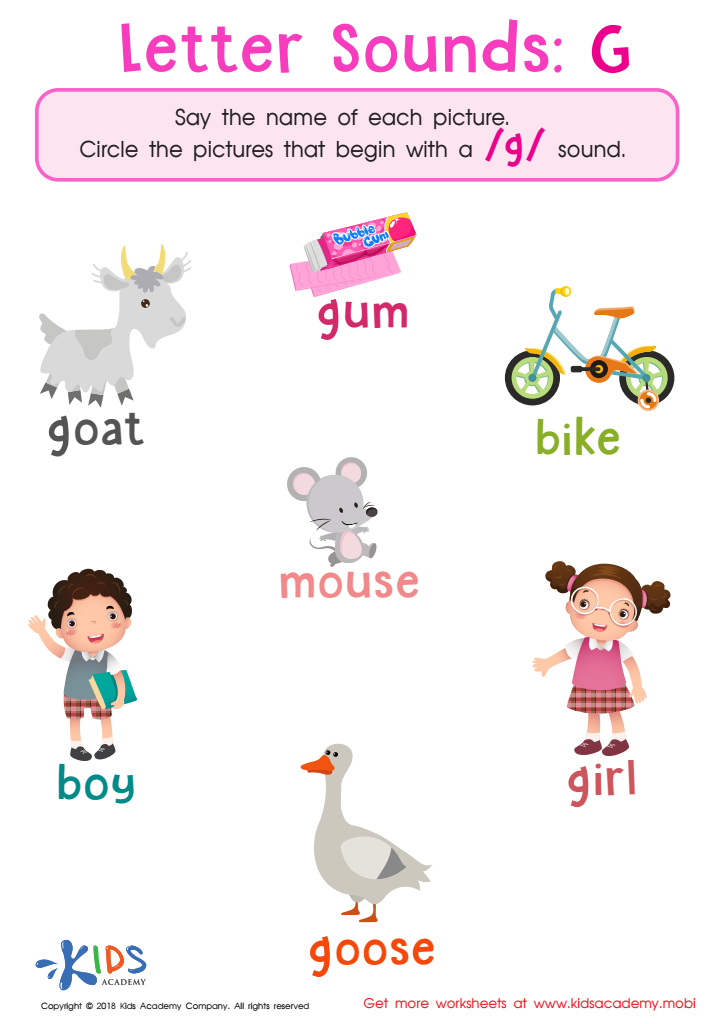

Letter G Sounds Worksheet
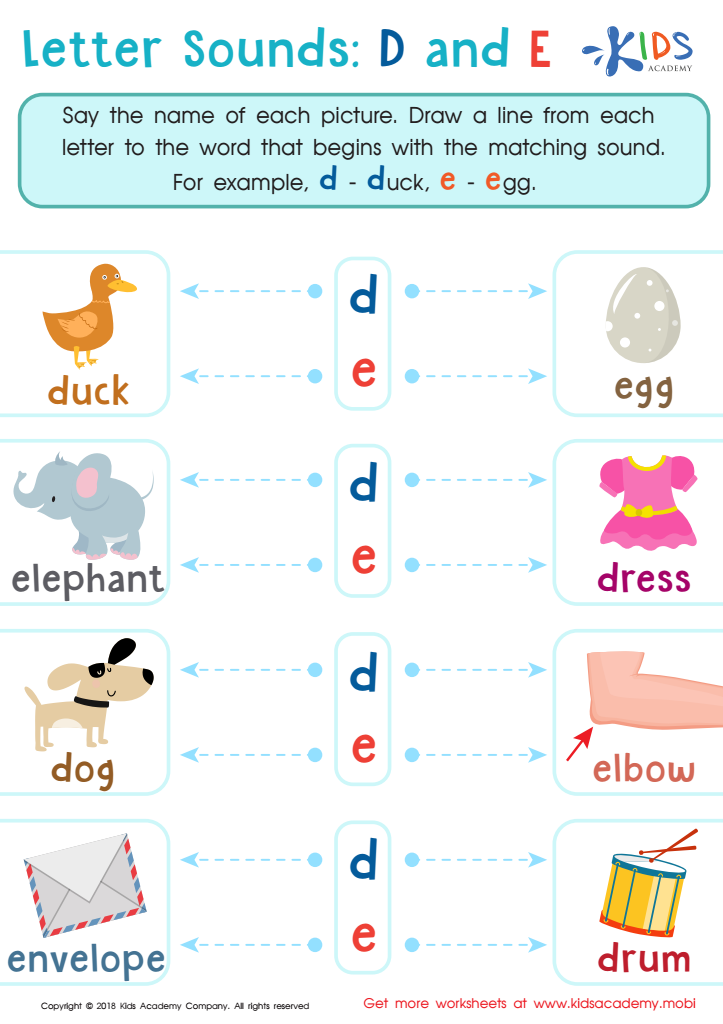

Letter D and E Sounds Worksheet
Parents and teachers should prioritize sound association with the normal alphabet for children ages 5-9 because it is crucial for early literacy development. This age range is foundational for learning to read and write. Sound association, or phonemic awareness, helps children understand the relationship between letters and their corresponding sounds. When children learn to associate sounds with letters, they gain the skills necessary to decode words, spell accurately, and understand phonetics.
Early mastery of these skills enhances vocabulary development and boosts confidence in reading, fostering a lifelong love for literature. For teachers, integrating sound association into lessons aids diverse learning styles, making literacy more accessible and engaging. For parents, reinforcing these skills at home or during everyday activities supports learning beyond the classroom, creating a cohesive educational environment.
Furthermore, sound association alleviates common reading challenges such as dyslexia, providing all learners the opportunity to thrive. By focusing on sound letter connections, parents and teachers cultivate critical thinking and problem-solving abilities, core competencies for future academic success. In a world increasingly dependent on literacy, nurturing these early skills sets the stage for brighter educational futures and increases children's overall achievement.
 Assign to My Students
Assign to My Students



.jpg)










